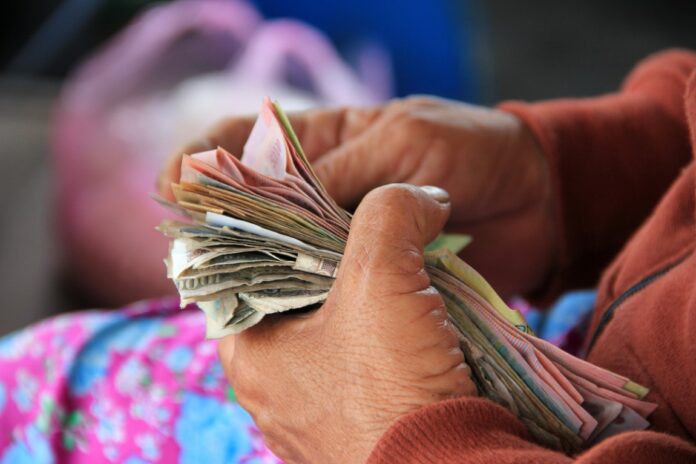Intellidex, a research firm released a report in July 2022 around the possible implementation of the basic income grant (BIG). The report commissioned by Business Leadership South Africa looked at the different funding options available for the BIG. The report concluded that “a BIG is unaffordable”. The Daily Vox team took a look at the growing opposition to the BIG.
Some of the main conclusions from the report
Some of the report’s main conclusions is that a full-funded BIG through new taxes would reduce economic activity. The report states that raising taxes would be the only way to fund the grant. The firm believes this might lead to capital flight and emmigration. Intellidex mentioned that “in almost all of the simulations modelled, GDP was predicted to be lower after the implementation of a BIG”. The report also says that the BIG would deepen poverty and have more negative impacts than positive.
RELATED:
How the Basic Income Grant has worked in other countries
The report from Intellidex is not the only one which has come against the BIG. Business Unity South Africa has said the basic income grant is “only with one element of the broad array of issues that need to be resolved”. The group said they would back a proposal for expanded social support through an unemployment insurance type product.
In August 2022, reports emerged that the department of social development is working on a proposal. This was to extend the R350 social relief of distress grant. This would be until the government finalises the basic income grant.
The Daily Vox team spoke to two proponents of the BIG and its implementation: Isobel Frye and Dr. Kelle Howson. Frye is the executive director of the Social Policy Initiative. Howson is a postdoctoral researcher on the Fairwork project at the Oxford Internet Institute. She also works with the Institute for Economic Justice (IEJ).
Why the resistance?
Howson said there are many complicated reasons as to why there is opposition to a basic income grant. She admitted that the grant is a complicated policy decision with risks that need to be carefully considered.
“We at the IEJ don’t gloss over those risks. We are very aware of the complexity of this decision,” Howson. However, she added that the perspectives being given lately from the business community have been very narrow.
RELATED:
Inequality of South African proportions
Frye said there has been consistent reports from many international organisations around South Africa’s inequality. South Africa is considered the most unequal country in the world with huge wealth disparity. For Frye: “The BIG is a very simple policy that would make a big difference.”
Howson echoed those sentiments: South Africa is facing many challenges at the moment.
RELATED:
Basic Income Grant funding, explained
“The scale of poverty in South Africa and the scale of economic inequality is in itself unsustainable. It is economically and socially unsustainable and it is incompletely unjust,” Howson said. While Howson said there needs to be an evidence-based debate about how best to implement income support, so far the business community hasn’t provided any meaningful proposals.
Frye said this is something that the ruling party has realised, especially with the 2024 national elections coming up. In response to the resistance and alarmist remarks around the BIG, Frye said her organisation is not saying that the BIG or universal basic income grant “will be the beginning and the end”. The reason why they are advocating for it is because they are saying by giving a basic amount of money to everyone, other schemes and policies can then be introduced.
“People in poor communities are really trying but there is no point in making vetkoek if your neighbours can’t afford to buy it,” Frye said.
As opposed to the concerns from the business organisations, Frye said her organisation SPI works on pure monetary policy. This means that if income is redistributed, there will be a circulation of money through the economy.
READ MORE:
The calls for Basic Income Grant, explained
“The other thing is that from research that we’ve done as SPI is that for each rand spent by the government in a social grant, there is a multiplier effect of 1.5 and that’s a conservative element,” Frye said. This means that for every rand that the government spends on a social grant, there is a profit because it is used to support someone else’s initiative. In this way, according to SPI’s research, the BIG could possibly begin to fund itself within a few years.
In the Intellidex report, it’s mentioned that raising taxes will be the only way to fund the grant. Frye said while there might be some people who say they aren’t prepared to take on any additional burdens, for many this isn’t the case. This is because for many black South Africans, they are already paying black tax.
Black tax for anyone who doesn’t know is “the reality that people historically marginalised by apartheid still face, where an income-earner usually splits their income in order to help their immediate and sometimes extended, families”.
RELATED:
This Tool Shows How Black Tax Works
“It does come down to the distribution of wealth in this country and who is currently carrying the burden of poverty,” said Frye.
Along with the opposition emerging to the basic income grant, there has also been the messaging that the grant is unavoidable. Howson said the narrative that South Africa has reached a point of crisis and has to resort to the BIG is a shame.
“In the rest of the world the BIG is a radical, progressive proposal based on evidence. It’s a forward-looking thing,” Howson said. It’s for that reason Howson said there needs to be a better public understanding of the benefits of a UBIG would be for South Africa.









